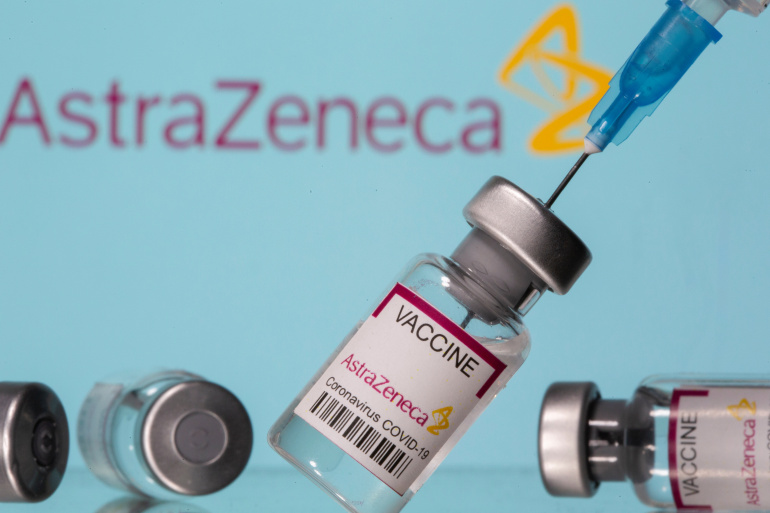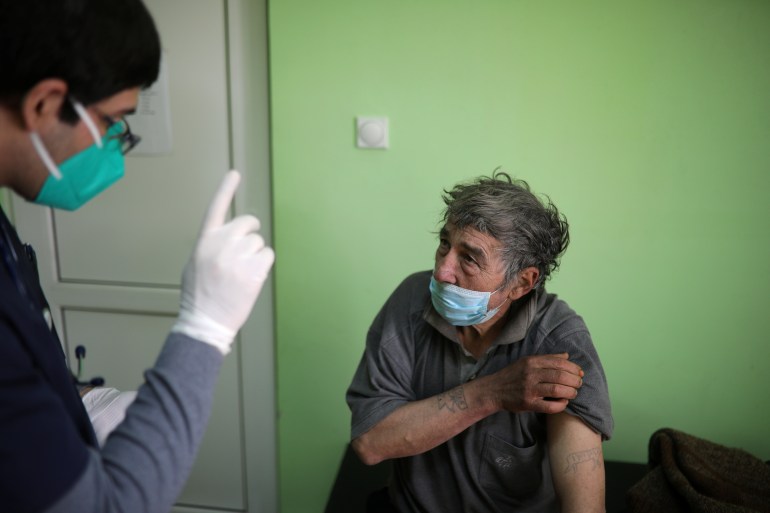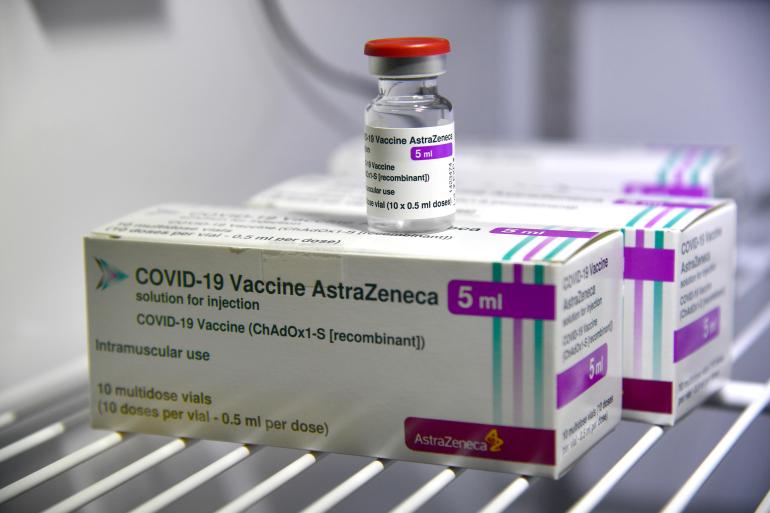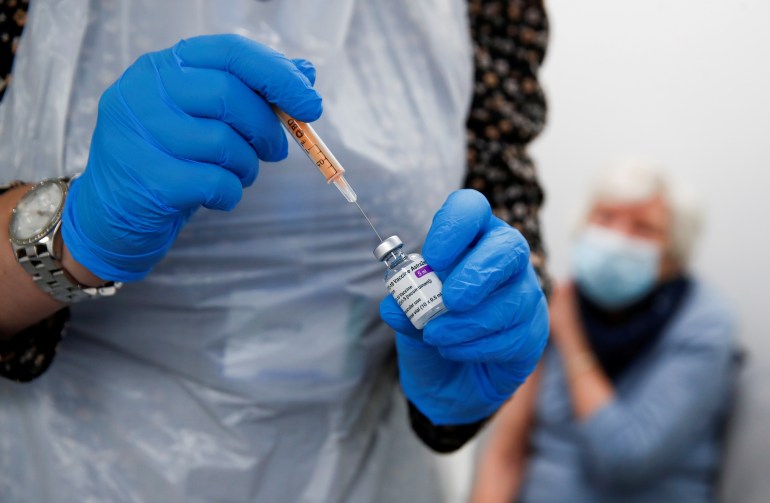
(AlJazeera) Concerns grow over reports of blood clotting among some recipients, but WHO urges countries to keep using the COVID vaccine.
A small number of countries, mostly in Europe, have suspended the use of AstraZeneca’s COVID-19 vaccine amid fears the shot may have caused some recipients to develop serious blood clots.
The Netherlands on Sunday became the latest nation to halt the rollout, following moves by Ireland, Bulgaria, Denmark and Norway.
Other countries have stopped using certain batches of the vaccine, which is jointly produced with the United Kingdom’s University of Oxford.
As fears grew, AstraZeneca said a review of its safety data revealed no evidence of an increased risk of blood clots. The review covered more than 17 million people vaccinated in the United Kingdom and the European Union.
The EU’s medicines regulator – the European Medicines Agency (EMA) – and the World Health Organization (WHO) have also expressed confidence in the safety of the vaccine.
As of March 10, there were 30 reports of blood clots among almost five million people across Europe, according to the EMA.
But reassurances appear to have done little to calm doubts. These are the countries that have suspended use of the vaccine to date:
Indonesia
Indonesia’s health minister said on March 15 the country would delay administering AstraZeneca’s COVID-19 vaccine due to the reports of blood clots among some recipients in Europe.
“To be conservative, the food and drug agency delayed implementation of AstraZeneca [vaccine] as it awaits confirmation from the WHO,” said Budi Gunadi Sadikin.
Indonesia received 1.1 million doses of the AstraZeneca vaccine via the global COVAX vaccine-sharing programme this month and is set to receive some 10 million more in the next two months.Play Video
Netherlands
The Netherlands saw 10 cases of noteworthy adverse side effects, a Dutch drug watchdog said on March 15, hours after the government suspended the vaccine.
The Pharmacovigilance Centre Lareb said the reported incidents included cases of possible thrombosis or embolisms, but none included a lowered number of platelets, as has been reported in Denmark and Norway.
The vaccine will not be used until at least March 29 as a precaution.
Ireland
Ireland announced on March 14 that it had halted AstraZeneca “out of an abundance of caution” after reports from Norway of serious blood clotting in some recipients there.
Ireland’s National Immunisation Advisory Committee (NIAC) recommended the suspension pending further information from the EMA.
“It may be nothing, we may be overreacting and I sincerely hope that in a week’s time that we will have been accused of being overly-cautious,” Deputy Chief Medical Officer Ronan Glynn said.

Italy
Italy’s northern region of Piedmont said on March 14 it would stop using a batch after a teacher died following his vaccination.
The region made the move to identify and isolate the batch, and experts are investigating whether there is a connection between the death and the vaccination.
The statement did not specify what batch it had banned nor did it say how the teacher died.
A few days earlier, Italy’s medicines authority AIFA banned AstraZeneca doses of the ABV2856 batch – a decision reportedly made after two male recipients died in Sicily.
Bulgaria
Bulgaria on March 12 temporarily halted AstraZeneca after reports that a 57-year-old woman died hours after receiving a shot.
Prime Minister Boyko Borissov said the AstraZeneca rollout would be paused “until all doubts are dispelled and as long as the experts do not give guarantees that it does not pose a risk to the people”.
The woman is believed to have died of heart failure; the autopsy found no blood clots.Play Video
Democratic Republic of the Congo
The Democratic Republic of the Congo (DRC) announced on March 12 it was delaying the AstraZeneca vaccine, citing the European countries’ moves.
DRC received 1.7 million AstraZeneca doses via the COVAX scheme on March 2, but is yet to start its inoculation programme.
“We hear that in Europe there are several countries that have suspended the vaccine. We are going to check to know more about this problem,” a spokesperson for Congo’s health ministry told Reuters news agency.
Thailand
Thailand became the first country outside Europe to delay the AstraZeneca vaccine, on March 12 – the day its political leaders were due to have the first shots.
The suspension was brief, however, with the Thai government announcing on March 15 that political leaders would receive a dose of the vaccine the following day.

Romania
Romania temporarily stopped vaccinating people with one batch of AstraZeneca’s COVID-19 vaccine – the same one in question in Italy – on March 11. Officials described the move as an “extreme precaution”.
The suspension will last until the EMA completes an inquiry.
Iceland
Iceland on March 11 suspended jabs with the vaccine as it awaited the results of an investigation by the EMA.Play Video
Denmark
Denmark on March 11 announced it was halting the use of the AstraZeneca shot for two weeks, following reports of blood clots in some people who had been vaccinated.
The Danish Medicines Agency later said a 60-year-old Danish woman who died of a blood clot after receiving the vaccine had “highly unusual” symptoms.
The woman had a low number of blood platelets and clots in small and large vessels, as well as bleeding, it said on March 14.
A few similar cases were found in Norway and in the EMA database of drug side effects, the Danish Medicines Agency added.
Norway
Norway also said it was suspending the use of the vaccine on March 11, as a caution amid the reports of possible serious side effects.
On March 13, Norwegian health authorities revealed three health workers – all aged below 50 – who had recently received the AstraZeneca vaccine were being treated in hospital for bleeding, blood clots and a low count of blood platelets.
It is not known if the cases were linked to the vaccine.
“We do not know if the cases are linked to the vaccine,” said Sigurd Hortemo, a senior doctor at the Norwegian Medicines Agency.

Austria
Before Denmark and Norway stopped their rollout, Austria on March 7 paused its use of a batch of AstraZeneca shots while investigating a death from coagulation disorders and an illness from a pulmonary embolism.
Estonia, Latvia, Lithuania and Luxembourg also suspended the use of the batch singled out by Austria.SOURCE : AL JAZEERA AND NEWS AGENCIES
